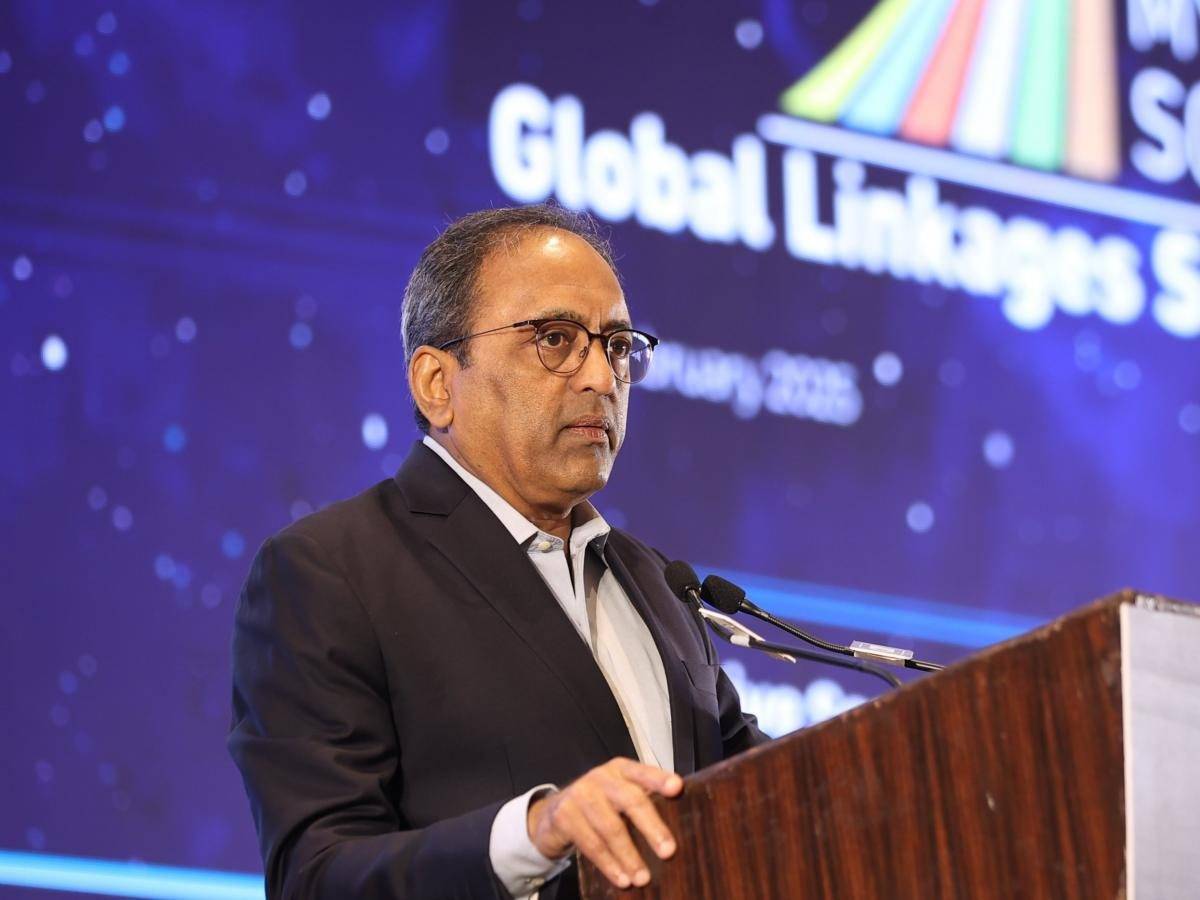
"Not Willing To Move": What L&T’s SN Subrahmanyan Said About Labour Shortages (image:x.com/CII4SR)
New Delhi: After unleashing massive controversy with his 90-hour workweek remark, Larsen & Toubro Chairman S. N. Subrahmanyan recently expressed concerns over the reluctance of workers to relocate due to the availability of government welfare schemes.
While speaking at the CII’s Mystic South Global Linkages Summit 2025 in Chennai on Tuesday, Subrahmanyan said there is shortage of workforce in the construction industry since workers are unwilling to relocate from one place to another. According to him, welfare schemes like MGNREGA, direct benefit transfers and JAN DHAN accounts have provided financial stability that has reduced many workers to move from their hometown for employment.
Also Read | Gold Prices Dip Slightly In India: Here’s How Much You’ll Pay Now
“Labour is not willing to move for opportunities… Maybe their local economy is doing well, maybe it is due to the various government schemes & DBTs (direct benefit transfers) available to them, but they are not willing to move,” Subrahmanyan said. Continuing further, he said that shortage of labour would affect the building of large-scale infrastructure projects which are important for national development, including roads and power plants.
Subrahmanyan talked about the labour mobilisation in L&T. He said: “As an organisation, we employ about 2.5 lakh staff and 4 lakh labourers at any given point of time. While attrition among staff does bother me, I am more worried about the availability of labourers today,” Business Today quotes, as Subrahmanyan is saying.
Though L&T has a dedicated HR team for labour mobilisation, recruitment and deployment, there are facing challenges in hiring construction workers, Subrahmanyan added.
Also Read | Apple Maps Joins Google In Renaming Gulf Of Mexico To ‘Gulf Of America’ After Trump’s Order
He said that the reluctance to relocate is not limited to construction workforce, but among engineering graduates as well. Citing from his own experience, Subrahmanyan recollected the time when engineers were expected to move to different cities as part of their careers. “But today, if I ask a person from Chennai to work out of Delhi, he says bye. It’s a different world of work today, and we have to see how to make HR policies flexible,” he said.













